|
from BuzzFeed.com 1. There’s no such thing as a sugar rush. It’s just a placebo. 2. The Great Wall of China is not the only manmade object you can see from space. 3. It’s not actually harmful to pick up baby birds and return them to their nests, and it will not cause their mother to reject them. 4. Human blood is never blue in your body. Other examples from: Personal Inserts:
1. Lightning does not only strike from the sky to the ground or ground to the sky, but can also jump from cloud to cloud. 2. There is very little evidence to show that watching TV for extended periods of time can harm your brain at all.
0 Comments
(Middle School Goals) I don't have very many Middle School goals, and I don't expect very many opportunities, I would love to have all A's, but I suspect I will get by with all A's and B's. I also hope to get especially high grades in high school credit classes.
(High school/College Goals) I want to have high grades and graduate early in high school, or get good grades in college credit classes. I hope to succeed my driving test the first time I take it. I want to graduate from The Ohio State University, Harvard University, Yale University, University of Chicago, or Vanderbilt University as I am looking into a scholarship in Genetics. (Genetics Colleges) ScreenFlow is an easy to use app that allows the user to record the user and the user's screen, and edit the video. Although ScreenFlow is easy, I will be giving a tutorial to help anyone looking to use ScreenFlow to be able to work the basic necessities of ScreenFlow. ScreenFlow is easy to use and I will be listing the basic, but important parts of my video below. The first thing in ScreenFlow that the user will need to know is how to split or cut a clip. To split a clip, click the red box with three dashes. Splitting clips can allow the user to delete, transition, and other ways edit clips down to a tenth of a second. Callouts are helpful because they point out where the user's mouse is, somewhere specific on the user's screen, or blur the location of the user's mouse or screen. Nearly every video will need text boxes, whether is be a title or just to add in something that the user didn't say in the recording. Annotation properties are helpful because they point out, box in, or circle anything, meaning that is has many different uses. Adding media will help with drawing in the attention of the viewers with music, adding pictures, or adding other recordings or other. ScreenFlow is helpful for anything that the user needs to record, the most frequent example being Youtubers. No matter what video a Youtuber is making, they need to record at least their screen, if not their faces as well. ScreenFlow will help anyone with a compatible device to record their screen and/or faces. My Hero... Whom I look up to... My hero is my uncle, Aaron Back. Aaron Back was not born in riches, he build up. He started out as a video game nerd, and still plays, but now he works for Whirlpool. His job at Whirlpool is to fix any problems with the computers and internet connections. He is also a very biblical man and helps out churches as much as possible. Some of his characteristics are joking, energetic, determined, patient, and generally a "half glass full" type of guy. He is joking because he never passes up an opportunity to mess with his friends and family. He is always energetic and determined at his work, whether it be at whirlpool, tinkering with parts, or helping with church activities. His job of fixing computers, among other things, is a job that requires patience. I look up to my uncle because he is smart, he works at a job he likes, he makes good money, and he has always found ways to help family and friends, whether is be helping fix or change anything or simply giving a discount on a personal computer, he tries to help everyone to the best of his ability. 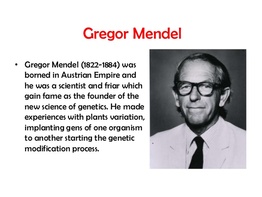 My 2nd Hero... Created what I want my job to be... The hero I have is Gregor Mendel, the founder of modern Science and Genetics. Gregor Johann Mendel was a German-speaking Moravian-Silesian scientist and Augustinian friar and abbot of St. Thomas' Abbey in Brno who gained posthumous fame as the founder of the modern science of genetics. Wikipedia You could say that Gregor Mendel had patience, as he worked with pea plants to lay down the basics for modern day Genetics. I only have 4 pictures from summer break, but the pictures tell a story of 4 different places. Over the summer, I ate at Frickers, went to the Huron County Fair, went to Mona Mi, and vacationed at Rocky Fork State Park. Every year my family and I visit Rocky Fork State Park with our grandparents, and mostly fish, anywhere anytime. Mona Mi is a fancy (and expensive) restaurant that mostly features seafood like crab legs and shrimp. At the Huron County Fair, my family and I walked around and saw Emily Keene show cows, and Dakota Hiltbrunner and Elizabeth Music show chickens. Frickers is a not-so-expensive restaurant with nothing really to tell about it. Vocabulary week of October 3rd-7th  30. A. Illusion - an expression designed to call something to mind without mentioning it explicitly; an indirect or passing reference B. The most well known type of illusion is an optical illusion. C. Brain Games is a television show that shows you just how much your brain takes in, and how easily it can be fooled or manipulated.  29. A. Onomatopoeia - the formation of a word from a sound associated with what is named. B. Comic books are a classic example of Onomatopoeia. C. You most commonly find Onomatopoeia in sports. Basketball: Swish!, Football: Wham!, and others such as boom and dribble. 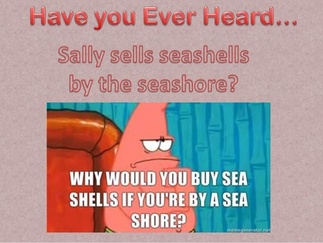 28. A. Alliteration - the occurrence of the same letter or sound at the beginning of adjacent or closely connected words. B. In reading class, we had to find Alliteration in stories. C. Alliteration is commonly used for Tongue-Twisters.  27. A. Irony - the expression of one's meaning by using language that normally signifies the opposite, typically for humorous or emphatic effect. B. Irony is typically used for humor and consists of saying that something that you do or are doing is something you hate or dislike. C. The picture to the left has three examples of irony. The first one is the vandalism that says "I hate Vandalism". 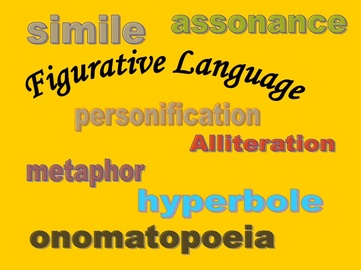 26. A. Figurative - departing from a literal use of words; metaphorical. B. Figurative language is used to make an article of writing more appealing C. Figurative language is used by any good author or student. Vocabulary Week of September 25th-30th 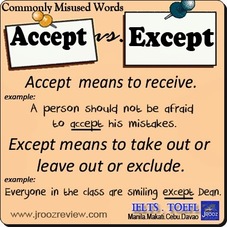 25. A. Accept - (Verb) consent to receive (a thing offered) or to believe as truth B. A good way to remember the difference is that 'ex-' means 'not' or 'to leave out' or 'no longer'. C. Although I was invited to the school dance, I couldn't accept  24. A. Except - not including; other than. B. Trained service animals are the same as other animals except they are specially trained to help specific people. C. You can experience this when Trump said he had no problem releasing his tax returns, except that he would wait until Hillary released her privatized Emails. 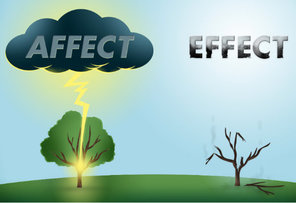 23. A. Affect - have an effect on; make a difference to. B. Affect is something that happens C. Magnets can affect on another from a distance. 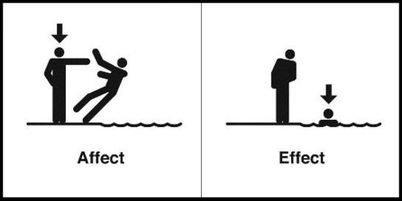 22. A. Effect - a change that is a result or consequence of an action or other cause B. Effect is the result of something that happens C. The effect of placing two magnets together is that they attract or repel one another 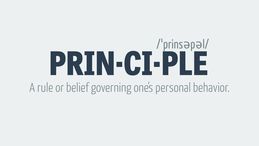 21. A. Principle - a fundamental truth or proposition that serves as the foundation for a system of belief or behavior or for a chain of reasoning. B. Principles are basic rules. C. Everybody has their own set of basic principles to live on, such as no loaded guns in the house, or only drive to the grocery story once a week. Vocabulary Week of September 19th - September 23rd 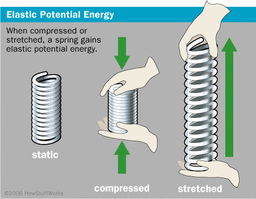 20. A. Elastic potential energy - energy stored in any object or material that is bent, stretched, or compressed. B. Elastic potential energy is the energy found in anything is that is stretched, or compressed. C. Elastic potential energy is most commonly thought of as a spring.  19. A. Newton - the unit in the metric system used to measure force. B. We have named this unit of measurement because of Isaac Newton, who is the founder of three major laws of science, and physics. C. We use Newtons in a measuring scale as shown.  18. A. Force Field - an area around an object where an object can influence another object with out touching it. A magnetic field is an example of this. B. Because everyone is used to sci-fi movies and impenetrable force fields, it is hard to imagine that we are always experiencing force fields, such as a magnetic, or electromagnetic field. C. We are always experiencing force fields, such as gravity, magnetism, and electrostatic charges. 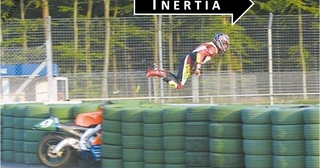 17. A. Inertia - how hard it is to get something moving, stop a moving object, or change the direction of a moving object. B. Because of Inertia, wrecks are extremely dangerous, and things with large mass are hard to move. C. We are always experiencing Inertia, such as when we move a desk, riding in a car or bus, even something as simple as walking or moving a pencil. 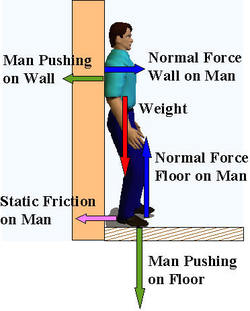 16. A. Normal force - a equal but opposite force that pushes back when you stand, sit, or push on a surface so you do not sink through that surface. B. If you push against a wall, it as though the wall is pushing back, keeping you upright, and the same with the floor as you stand, otherwise, we would fade through everything like ghosts in a bad horror film. C. No matter what you do, you will always feel normal force, whether you lean against a wall, jump, or even simply stand or sit. Vocabulary Week of September 12th - September 16th 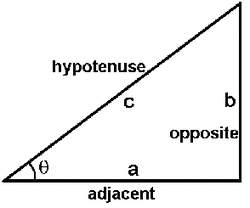 15. A. hypotenuse - (noun) the longest side of a right triangle, opposite the right angle. B. The Hypotenuse is the longest side of a right triangle, across from the right angle. C. The hypotenuse is longer than the opposite or adjacent sides.  14. A. converse - (Verb) To engage in conversation. B. To engage in in conversation is to converse. C. A conversation requires more than one person. 13. A. irrational numbers - In mathematics, an irrational number is a real number that cannot be expressed as a ratio of integers, or fraction. B. An irrational number cannot be a fraction. C. An irrational number can be a decimal without a pattern or repetitive numbers. 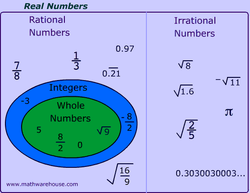 12. A. rational numbers - In mathematics, a rational number is any number that can be expressed as the quotient or fraction p/q of two integers. B. Rational numbers are any numbers between negative infinity and positive infinity, including fractions. C. Rational numbers do not include decimals without repetitiveness or a pattern. 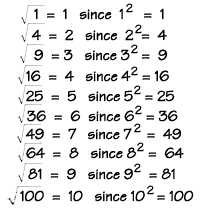 11. A. square root - a number that produces a specified quantity when multiplied by itself B. The square root of 2 is an irrational number. C. The square rot of 144 is 12. Vocabulary Week of September 6th - September 9th  10. A. Collaborate - (Verb) To work together. B. Most things in your life will require you to collaborate with one or more people. C. The most common way to say Collaboration is Team Work. 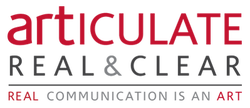 9. A. Articulate - (Adj) To speak coherently or Fluently. B. It is easy to speak a new language, but hard to be articulate at a new language. C. Articulate communication is key for diplomacy  8. A. Evolve - (Verb) Gradually change into something more complex. B. Science lead us to believe that all humans Evolved from Apes. C. Evolution has occurred to nearly 99% of species currently living on earth. 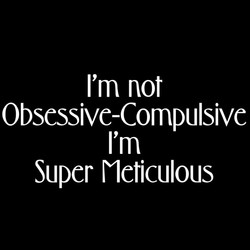 7. A. Meticulous - (Adj) To show great detail or precision. B. The greatest artists and architectures were and are meticulous. C. A Meticulous person pays great attention to detail... obsessive-compulsive disorder is a disorder the make the person have to do something perfect or have something a certain way.  6. A. Agile - (Adj) To move quickly or easily B. If you are very agile, you are good at sports. C. To become Agile, you need to try hard and push yourself over the limit. Vocabulary Week of August 29th - September 2nd  5. A. Argument - A reason or set of reasons given with the aim of persuading others that an action or idea is right or wrong. B. There are a lot of different words for a persuasive conversation and the most used word is an Argument, although Arguments are usually a heated conversation. C. Arguments don't necessarily need to have a right or wrong side as an argument is simply two points or views.  4. A. Cite - quote (a passage, book, or author) as evidence for or justification of an argument or statement, especially in a scholarly work. B. Another word for Cite is textual evidence, and what it is is 'giving credit where credit is due' or saying that you didn't come up with it, but instead found it from an article or person or etc. C. Copying something off of the internet without citing it is a crime called copyright.  3. A. Passive voice - The noun or noun phrase that would be the object of an active sentence appears as the subject of a sentence with passive voice. B. In a Passive Voice sentence, The subject comes first, and then the action comes second C.A Passive voice involves stating the subject then action, while an Active Voice states an action then subject. 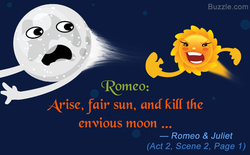 2. A. Personification - The attribution of a personal nature or human characteristics to something nonhuman, or the representation of an abstract quality in human form. B. "The squirrel ran as fast as he could to gather nuts, because winter was coming." This is Personification because human like qualities are given to a non-human object. C. William Shakespeare filled his poems with personification among other things. 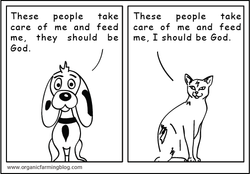 1. A. Point Of View - A particular attitude or way of considering a matter. B. The Presidential election is entirely run on a Point Of View, that is why there is multiply parties, and why there are split decisions in voting and not entirely one person or party. C. There is no right or wrong Point Of View, as it is just how you think or see. |
AuthorMiddle School Student Archives
April 2017
Categories |
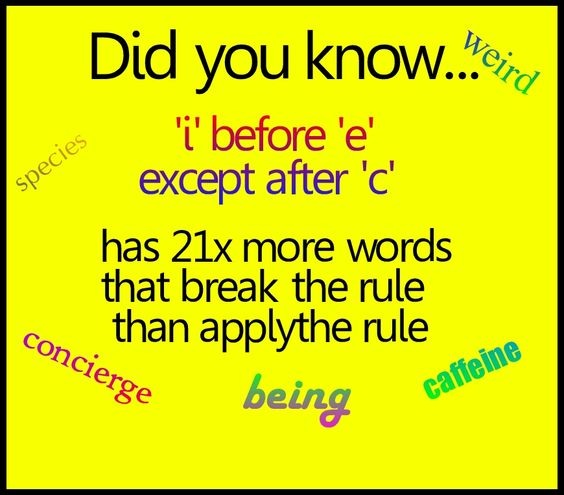
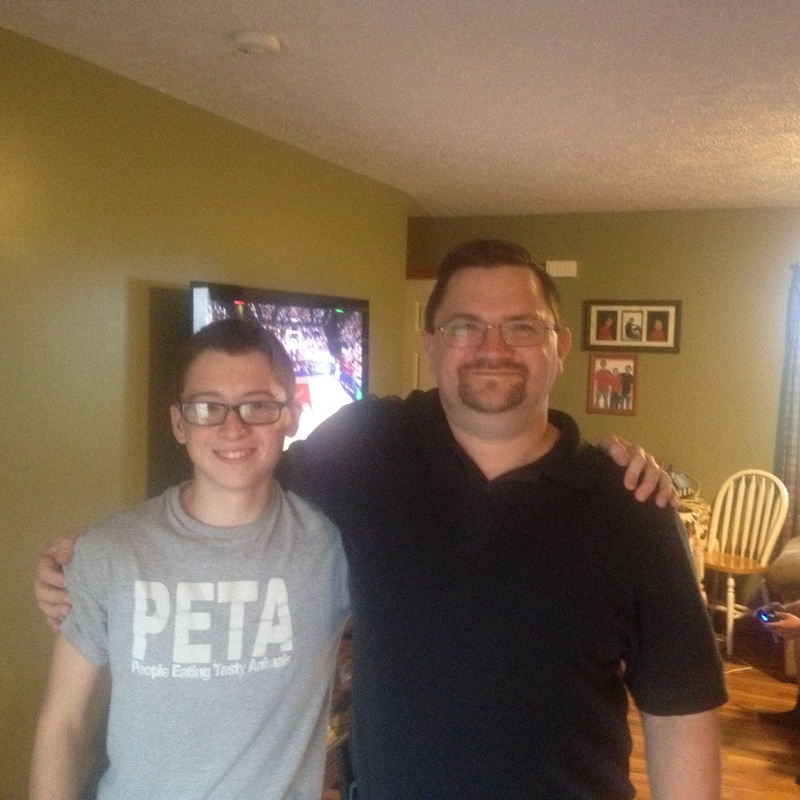

 RSS Feed
RSS Feed
